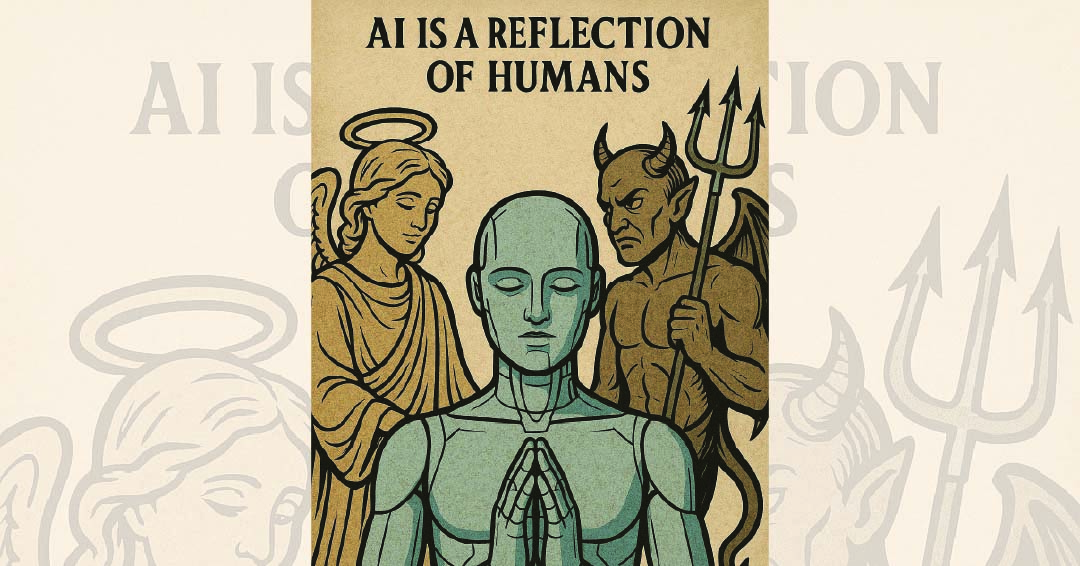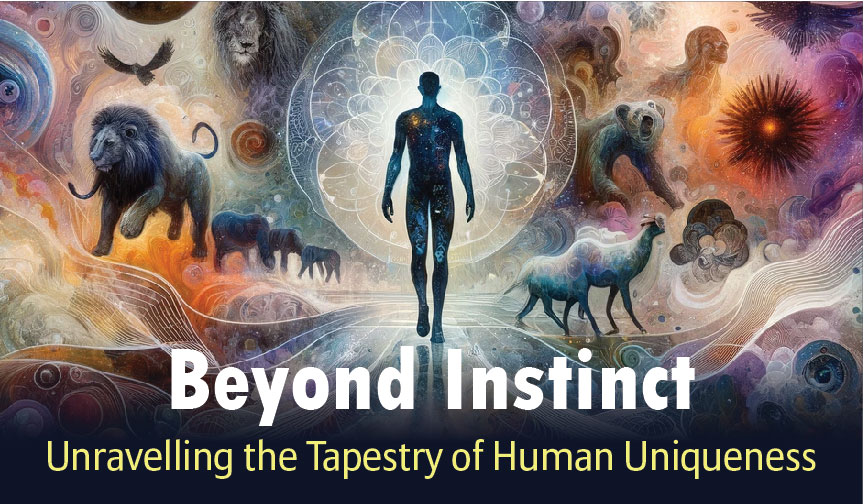Aligning Yourself with Universal Consciousness

As a kid I would visit my relatives in the village for my summer vacations. It was a very pleasant and laid-back experience. My two-month vacation from school exposed me to a routine which was in stark contrast to the life I otherwise led. I still remember following my grandfather as he would go about doing his daily chores, learning to imitate his style of conduct around work and village folk. We had a large temple in our village of Lord Shiva, which was built by my Great Grand Father quite a few years ago. It was run and managed by my Grand Father and I would accompany him every morning. As he would offer his prayers, and check up on work and activities, I would look around and notice all these devotees sitting there, lost in prayer and mantras. I’d be bored in the temple, turning a lot fidgety, tugging on his sleeves every now and then requesting him when we could leave. Afterwards, we would head for other work and I would accompany him. This part excited me a lot since I would get to run around the village, interact with the people there and explore various facets about the village like farms, market places and children my age playing in the streets. I made my dislike for the temple visit quite obvious one day, when he asked me what the reason was, I behaved like that in the temple. I just shrugged, and looked at him. “I feel that it is just a waste of time. All these people are just lost, sitting idle, while they could be doing something productive – like working in a farm, or a hospital or making scientific discoveries. Why waste your life, when you could be doing something significant, something worth living for, worth telling about?”
He smiled – the way grandpas smile when they see a headstrong grandchild make assumptions that they know the key to leading a better life. He went on to tell me that it was a choice very innate to every human, on how they chose to seek the divinity within them. ‘For some it was Bhakti (Devotion), for some it was Karma (Work), for others it was Jnana (Knowledge) and for most it was a combination of all three. But, whatever the way, all these paths, led you to being one with the universal consciousness, of which you are merely a subset! Just because you believe in a different path, and chose to tread it, don’t glorify it, don’t be attached to it and don’t judge others who are walking down a different journey.’ This, according to him was the best way to lead a fulfilling life, where one could deliver his/her best without being attached to the means or the ends. But what would I know, I was just a kid, escaping school and the city to lead a jolly life in the village. The last thing I wanted to do was get into an argument with a man who was revered among the villagers for his wisdom, and get scolded by my dad for having done so.
But after almost 5 decades of having heard this, and after having my own tryst with success, power, money and glory, now when I seek a higher meaning to life, when I want to know what quenches one’s thirst to fulfillment, and after seeking answers from scriptures and learned men, I can see that my grandpa was quite right. Often we are so attached to our journey – our losses, victories, the friends and enemies we make along the way, our reputation – that we get overly attached to our version of reality, negating all others. This distorted and biased viewpoint, gives rise to the ego – the ‘I and them’ and ‘the mine and theirs’. The separation that arises, disengages us from being one with the creation around us, and if we go unchecked, this results in extreme forms of unhappiness – for we have the world pitted against us. This is where despair sets in – we find ourselves victims to situations, people and events in our life.
Having said this, what is the way back home? How do you reconnect to the bliss, peace and love that lies within you? How do you align yourself with the universal consciousness and experience the all-pervasive oneness that binds everything in the cosmos together? The ways and means to it can be infinite – given the faith or dogma or scientific reasoning that you have chosen for yourself, but the underlying message and goal everywhere is the same. While, it’s not right for me to profess the practices which work for me, I can certainly share with you some universal truths that are sure to aid you in being aligned with your true inner self! For me I often turn to Yoga and the ethics it speaks of. Also known as the Yamas are five or ten ethics (depends on which text you refer to) that focus on our relationships with others and set us up for a harmonious existence in society, let me focus on a few relevant ones here and my take on them;
1. Ahimsa: the ethic of nonviolence. I have often believed that carrying anger towards someone is like carrying coal in your pocket. It is only going to burn you, hurt you, soil your vision and your journey. While forgiving is not an easy act to put to practice, embracing it as a practice fills your life with much more peace and gratitude. Once you get over hate, purposes in life are more important than incidences.
2. Satya: the ethic of truth. This means truth in words, thoughts and deeds, and aligning what you say with what you do no matter what the consequences. The truth typically has only one version and hence puts one at peace and sets one free if you adhere to its path. There is no right or wrong, but the truth prevails. The sooner we can understand this the faster our life gets simplified.
3. Asteya: the ethic of non-stealing. This refers to not taking what is not yours. At the centre of it is also being satisfied with what you have, whether perceived by you as big or small, valuable or not. Which weaves in beautifully into the next Yama;
4. Aparigraha: the ethic of non-collection. This encourages you to acquire only what you need and discourages you from attachment to worldly possessions. – How often have we heard, “Do your karma, without worrying about the Outcome!” This is one of the toughest acts to master, but with regular practice, you are bound to get better at it. Practicing non-attachment helps you curb your expectations, and once you have no expectations from a situation, a person or an event – you become invincible to the emotional outages it brings.
5. Ksama: the ethic of forgiveness. Humans tend to Err and this can happen in any of our relationships on the personal and professional front, the only way to true, ever lasting peace is to forgive. The trickiest part sometimes however is the act of forgiving oneself when one realizes ones mistakes, this takes practice and making a lot of mistakes!
6. Dhrti: the ethic of Fortitude. We all have goals, and the most important thing is to keep chipping away at them, irrespective of difficulties and hindrances. Those who typically persevere the longest, tend to reach the goal and be successful. Never give up on something you truly believe in and want to achieve!
7. Daya: the ethic of Compassion. Being kind and compassionate is the very essence of being human and it must set us apart. It could be a compliment, random act of kindness, or sometimes just a broad smile. Compassion makes a huge difference to peoples lives and it is something you do for others and yet somehow it makes you feel so good inside.
8. Arjava: the ethic of sincerity. This simply refers to honesty and non-hypocrisy! To me it means straightness, sincerity and harmony in one’s thought, words and actions towards oneself and towards others. Practice what you preach and be honest is a habit inculcated in us since childhood, so simple and yet one of the toughest things to practice in today’s world. If you’re consistent in your thoughts, actions and words, I believe then and only then can you be at peace with yourself and the Universe at large.
At the end of the day spiritualism is a journey, which one has to undertake consciously. There is no path which is right or wrong, but typically the path of Goodness and Belief works! To end with, I would like to quote a line from Patanjali’s Yoga Sutras, “yogas chitta vritti nirodha” refers to stilling the mind in order to experience Ultimate Reality and move toward Self-realization. It is only when we remove all prejudices and disturbances of our mind, that we are truly one with everything and all that is.
About the author

Tapan Singhel is the MD & CEO of Bajaj Allianz General Insurance Company Limited. This blog has been initiated by him so that he can directly interact with all the valuable customers and employees of this company.
 Service Chat:
Service Chat: 




Leave a Reply